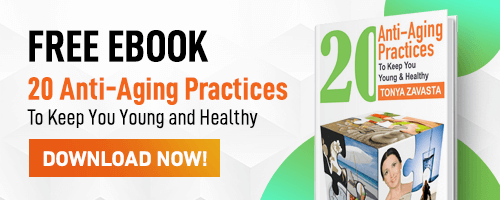Myths About Cosmetic Preservatives

We all get concerned when we see a chemical-sounding name among ingredients in our cosmetics. Since I have been eating raw foods without anything added to them since 1997, when creating my own cosmetics, I wanted them to be as pure as possible. Preservatives in particular became a focus of my most scrupulous investigation.
Reviewing hundreds of cosmetic products, I discovered that some cosmetic companies don’t disclose preservatives as well as other ingredients, such as emulsifiers or stabilizers, that sound chemically unfriendly to the untrained customer. I prefer the truth. Here are the top 4 cosmetics myths you must become aware of:
Myth #1:
Grapefruit seed extract is an all natural preservative.
One customer wrote to me asking why I’m not using “natural preservatives” such as grapefruit seed extract. I wonder: Did she imagine we’re intentionally adding some kind of chemical preservative instead of a natural one? It’s not likely that I would be trying to get chemical preservatives in through my skin that I strive so hard to keep out of my food.
But here’s the reason for her question…Some cosmetic companies make you believe that grapefruit seed extract works as a natural preservative. However, U.S. and foreign studies report suspicious, abnormal chemical activity in randomly selected grapefruit seed extracts. A report from the Institute of Pharmacy, Ernst Moritz Arndt University, Greifswald, Germany examined the content of and the effectiveness of the preservative agents in six commercially available grapefruit seed extracts. Five of six showed a high growth-inhibiting activity against the test germs—there’s your good news.
The bad news…within all these grapefruit seed extracts researchers also detected the chemical preservative benzethonium chloride. Additionally, three extracts contained the preserving substances Triclosan (which is classified as toxic to the organ system, causes endocrine disruption at low doses and is persistent in the environment) and Methyl Paraben (for which there is strong evidence of skin toxicity and endocrine disruption, among other concerns). However, you won’t find these preservative’s names on the label; it will just state “grapefruit seed extract.”
In only one of the grapefruit seed extracts was no preservative agent found. However, this extract showed zero preservative and antimicrobial qualities. The study’s conclusion: The potent antimicrobial quality attributed to grapefruit seed extract is merely due to the synthetic preservative agents added to it! Nonetheless, cosmetic companies are getting away with listing just “Grapefruit Seed Extract” on their labels.
I myself had once believed that grapefruit seed extract alone could work as a preservative. But my own experiments, performed as I was developing my facial cream, confirmed the German study: My “grapefruit only” samples went bad within a week! Tough truth. But I prefer the truth…
Right now radish root extract and aspen bark extract are touted as all-natural anti-microbials. These extracts alone cannot work as preservatives of regular moisturizers, meaning the facial creams that contain water. In fact, no "natural" extract can. Look at fruits, vegetable, roots and herbs. They all contain water and once cut, the bacteria and other gems, get hold of them very quickly.
Myth #2:
Essential oils will work as preservatives.
Yes, some essential oils do exhibit antibacterial and anti-fungal qualities. But in order to successfully preserve a product containing water, you must use these oils in their fully concentrated forms. This is unsafe. Fully concentrated oils can cause skin reddening, allergic reactions, dermatitis and even liver damage. As a result, if you peruse the websites of sellers of essential oils for cosmetic companies, you’ll see warnings that because of possible contamination, these essential oils should not be used as the sole preservative.
Myth #3:
Potassium sorbate is an all-natural preservative.
Well, what does preservative mean? In the fullest sense, a preservative is a substance which prevents or delays decay at the hands of both bacteria and of molds and yeasts.
Mold and yeast…potassium sorbate works. Against bacteria, however, it is useless. And in any setting with a pH higher than 6—just about any lotion—potassium sorbate is quite ineffective.
Let’s cut to the chase…The brutal truth is: There just aren’t any highly effective all-natural preservatives. Shocked? So was I.
Want to keep a product free of molds, yeasts, and bacteria? Then you’re stuck, like it or not, with some kind of chemical preservative.
Myth #4:
Cosmetics bought in small batches don’t require preservatives
Okay. Maybe. If you make the product yourself, or buy it straight from the manufacturer, with no “shelf time” being served between factory and face. Even then, refrigerate it right away. This way, your product will likely last a few days. Days…not months.
Creams containing herb, flower and fruit extracts are highly vulnerable to bacterial growth. If a product contains water or water may be introduced into it, then a preservative is needed—bacteria, mold and yeast positively thrive in the presence of water. Thus there are a few cosmetic products which do not include any water, instead using only oil—balms and salves— these will not need an added preservative. But the moment you use the product with wet hands, the contamination process begins. A preservative is considered a good precaution even then.
Lotions, creams or shampoos, however, invariably contain some water. This water has been combined with herb, flower and fruit extracts and placed in an enclosed jar or bottle. Add to that the warm, damp environment of your bathroom, and we’ve got a perfect little garden for growing pathogens. If such a product has no preservatives listed on the label, beware.
Bottom Line.
Buy cosmetics that doesn't contain water, like our Nourishing Night Cream, Propolis Body Balm, and Bloom Beauty Stick.
Make your own preservative-free cosmetics at home in very small batches. If this is not possible, buy your cosmetics only from the sources that you can trust. You deserve to know the truth.
